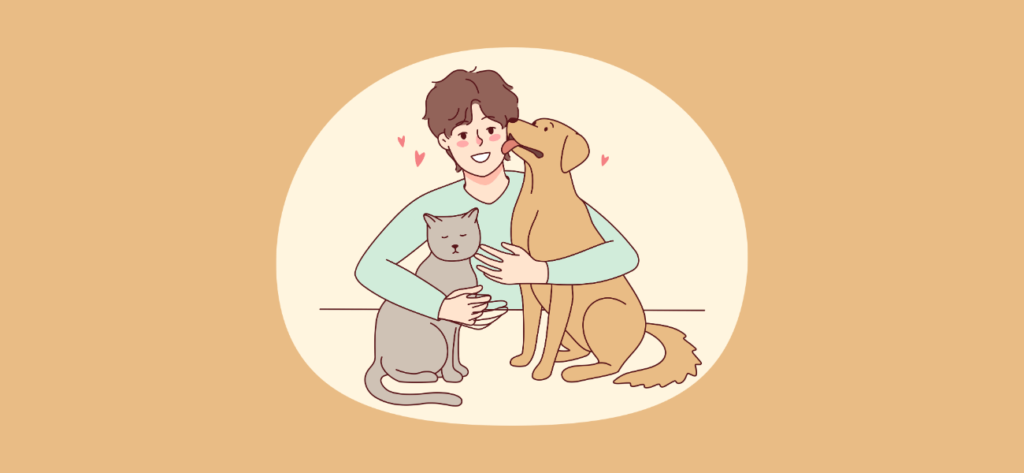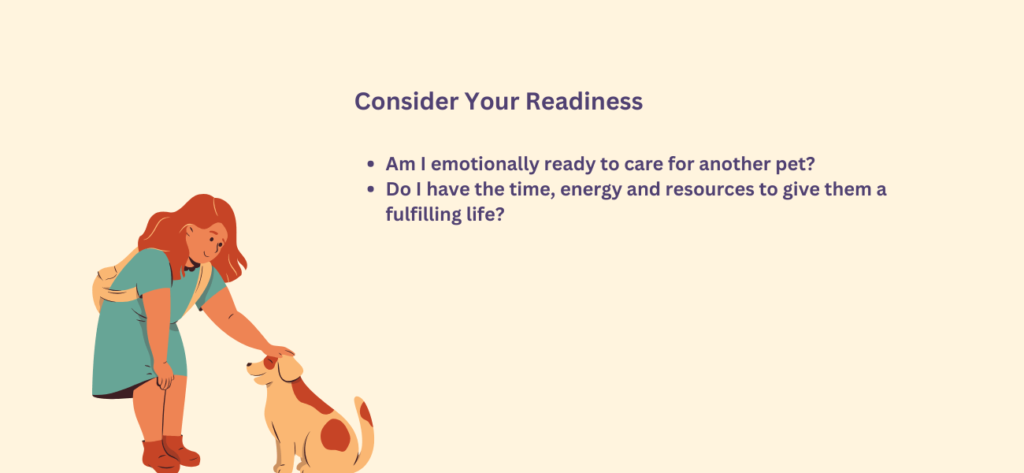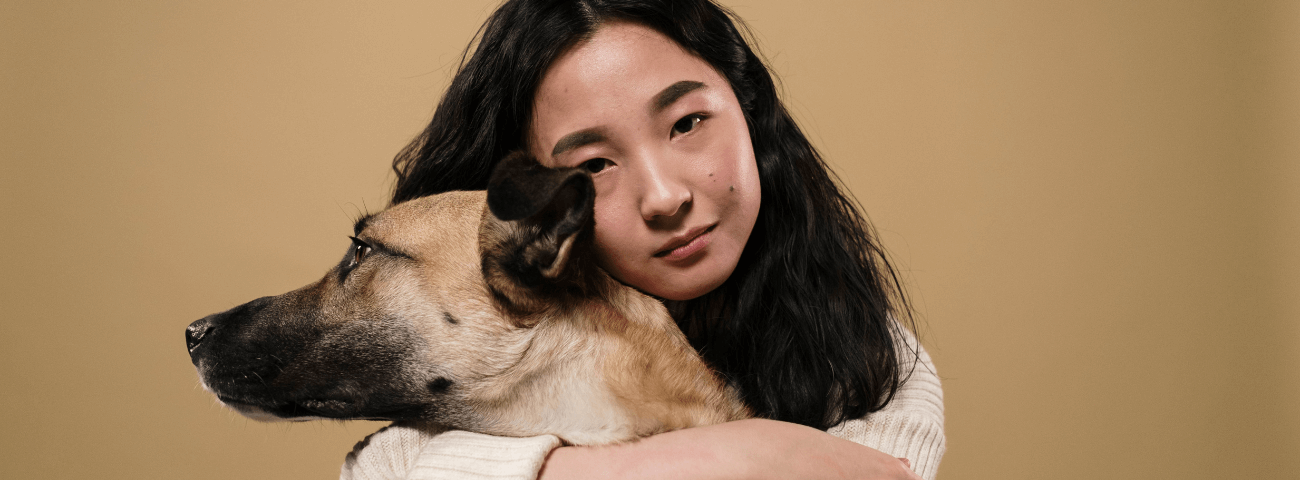You must have felt the silence in your home after they’re gone. The absence of a wagging tail at the door or the gentle nudge of a nose when you needed comfort most. Maybe you even catch yourself setting out a bowl of water only to realize they won’t be there to drink it.
It’s not “just an animal.” It’s your companion and your shadow through life’s ups and downs. Losing a pet feels like losing a piece of your heart; honestly, it is. This isn’t some problem you “just get over.” But it’s also a grief we don’t talk about enough. Why do we still hide this pain when it’s so real?
Let’s talk about it. Let us understand how we can deal with the loss of our loved one and most importantly, how we can begin to heal.
Table of Contents
Why Losing a Pet Feels Like Losing a Family Member

Losing a pet is one of the most profound heartbreaks a person can experience. It’s not just about losing “a dog” or “a cat.” It’s about losing a living, breathing source of unconditional love and comfort. You don’t realize how much of your life they were a part of until they’re gone. You’re left mourning in silence because, apparently, “it’s just a pet.” But it’s not. It’s a family member.
Unconditional Love and Acceptance
Pets love us in a way few humans can—without judgment or conditions. They don’t care about your flaws, mistakes or bad days. This unique bond is deeply comforting and often more dependable than many human relationships. Psychology suggests this non-judgmental companionship creates a sense of security and attachment that is hard to replace.
Daily Integration of Pets in Our Lives
Pets become a part of your routine. They’re there when you wake up. Remind you for the breakfast time. They’re waiting for you at the door after work, making your hardest days better. When they’re gone, it’s not just their presence but that your life that feels off.
Societal Attitudes Toward Pet Grief
Not everyone understands this grief. People might say, “It’s just a pet,” dismissing the depth of your pain. This is known as disenfranchised grief a pain that’s invalidated by others. It’s isolating and can make it harder to heal when you feel like you have to justify your sadness.
Understanding the Grieving Process

Understanding grief is an important step in coping with the loss of a pet. From guilt and regret to the unique emotional challenges anticipated in this journey. Let’s explore the stages of pet loss grief.
Stages of Grief for Pet Loss
- Denial: At first, it’s hard to accept the loss. You might find yourself thinking, “This can’t be happening,” or expecting your pet to walk through the door any minute. It’s hard to believe they’re truly gone and everything feels unreal for a while.
- Anger: It’s common to feel angry. You could feel anger at yourself, others or even your pet. Questions like, “Why did this happen?” or “Why couldn’t I do more?” may fill your mind.
- Bargaining: This stage involves wishing for a different outcome. In this stage, you might find yourself wishing for a chance to change things. You may have thoughts like “If only I had noticed the signs earlier” or “What if I had done something different?”
- Depression: The sadness hits hard as you realize your pet is gone. The house feels emptier. You miss the routines, the companionship and the little moments you shared.
- Acceptance: Over time, you learn to accept the loss. The sharp pain of loss begins to ease, though it never fully goes away. You may start to reflect on the good memories without as much sadness.
Acceptance doesn’t mean forgetting; it means coming to terms with the loss and finding a way to move forward, even if it’s slowly.
Addressing Guilt and Regret
- Guilt: It’s normal to feel guilty. You might question yourself, “Did I do enough?” or “Could I have made a difference?” The guilt often lingers because you care deeply and it’s easy to wonder if you could have changed the outcome. Remember, there’s no perfect way to handle a loss and you did the best you could.
- Regret: If you had to make tough decisions (like euthanasia), you might feel regret. It’s natural to feel this way, but understand that these decisions are made with love and in the best interest of your pet.
Coping Strategies for Pet Loss
Coping with pet loss requires both time and effort. It’s essential to be gentle with yourself and allow space for the grieving process. Below are some strategies that can help you begin healing.
- Mindfulness and journaling can be powerful tools. They help you process feelings and find clarity in difficult emotions.
- Practice self-compassion, especially on days when the grief feels too heavy to carry.
- Allow yourself to grieve fully without judgment and consider the emotional journey as valid.
- If you have children, explain the loss in a way they can understand. Age-appropriate conversations help them process their feelings.
- Family members should lean on each other for support. Share memories and talk openly about your grief together.
- Therapy and pet loss support groups offer a safe space to share your emotions with those who understand.
- Online resources and communities are available for pet owners who need validation and connection. These groups offer shared experiences, allowing you to process your grief with others who truly understand
Honoring and Remembering Your Pet
Losing a pet is a deeply emotional experience. Finding ways to honor their memory can help with the healing process. Here are some creative ways you can memorialize your pet and carry their spirit forward:
1. Create a Memory Box
Collect meaningful items like their favorite toys, a collar or photos and place them in a special box. This can serve as a physical reminder of your pet and help you cherish the memories you shared.
2. Plant a Tree or Garden
Planting a tree or creating a small garden in memory of your pet offers a living tribute that will symbolize the lasting impact your pet had on your life.
3. Commission Artwork
Hiring an artist to create a portrait of your pet can serve as a beautiful reminder of their presence in your life. Many artists specialize in pet portraits that you may like to try out.
5. Memorial Jewelry
Some pet owners choose to have a piece of jewelry made from their pet’s ashes or a fur lock. This can be a meaningful way to carry a part of your pet with you.
6. Share Their Story
You can share their stories or create a memorial website. This can help you process your grief and celebrate your pet’s life with others who understand your bond.
When to Welcome a New Pet

It’s important to give yourself the space to heal first before thinking about welcoming a new pet into your life. The bond we share with our pets is deeply personal and the pain of losing them can feel overwhelming. But when you’re ready, adopting a new pet can offer a new chapter of joy and healing.
- Wait for healing. Don’t rush. Give yourself time to grieve and heal before welcoming a new pet. Adopting too soon might feel like you’re trying to replace your lost companion, but that’s not the case. Each pet is unique.
- Feel emotionally ready. You’ll know when it’s right. If you’re emotionally stable and ready to open your heart again, it might be time to adopt.
- Adopt for the right reasons: Only adopt if you genuinely want to share your love with a new pet, not just to fill a void.
- Consider the needs of your new pet: Make sure you’re ready for the long-term commitment. Pets require care and attention and adopting another one is a lifelong responsibility.
- Open to a unique bond: A new pet won’t replace your old one. They will offer a new kind of love and companionship, different from what you had before.
Final Thought
Losing a pet can feel like losing a part of yourself. Your routines, your quiet moments and the bond you shared are suddenly disrupted. It can be hard to accept, especially when society doesn’t always give pet loss the space it deserves.
Even though the grief may not disappear, it does change. It becomes something you can learn to live with. And over time, it turns into a quiet strength.
Don’t rush the healing process. Whether it’s remembering the good times or finding support from others who understand, there’s no right or wrong way to heal. What matters is that you allow yourself the space to feel, mourn and eventually, find peace.
Frequently Asked Questions
How long does grief last after losing a pet?
Grief has no fixed timeline. For some, it may last weeks or months while for others, it can linger for years in varying degrees. It depends on your bond with your pet, your coping mechanisms and the support you receive. Remember, it’s okay to take as long as you need.
How do you say goodbye to a lost pet?
Saying goodbye is deeply personal. You might hold a small memorial, write them a letter or plant something in their memory. Some people keep a photo or create a tribute to honor their pet.
Does my pet know I love him?
Yes, pets feel your love through your care, affection and the time you spend with them. The bond you built together speaks louder than words. Rest assured, they knew they were cherished.
